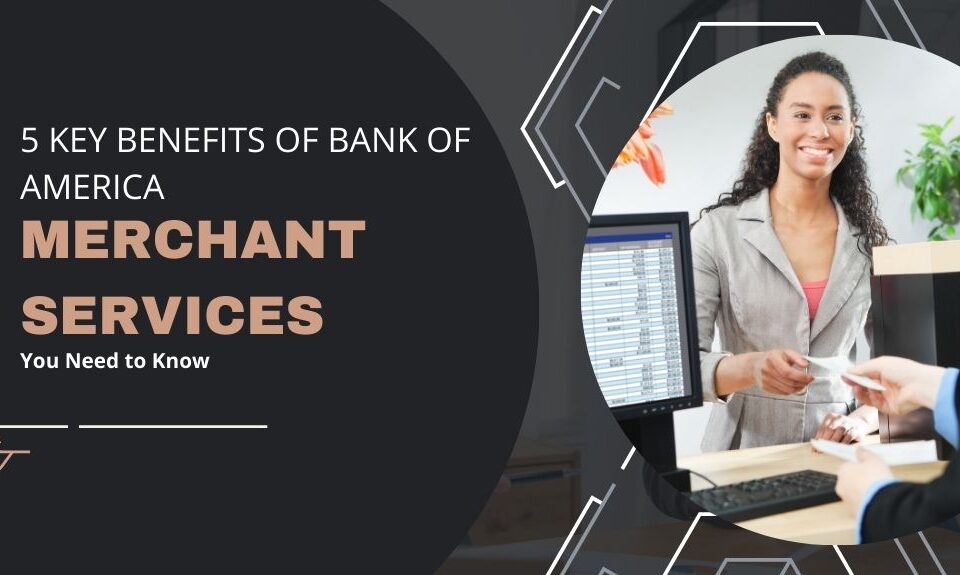Best Options For Bad Credit Merchant Accounts 2023

Choosing the Right Merchant Account: The Secret to MLM Success
December 23, 2023
The Future is Now: Explore the Best Merchant Accounts for CPAs
December 27, 2023Are you a business owner with bad credit struggling to find the right merchant account for your needs? Don’t worry, we’ve got you covered. In this blog, we’ll explore the best options for bad credit merchant accounts in 2023. We understand the challenges you face when it comes to getting approved for a merchant account with bad credit. That’s why we’ll provide you with valuable insights and alternatives to traditional merchant accounts that don’t require a credit check.
Having a merchant account is crucial for any online business, as it enables you to accept credit and debit card payments. However, with bad credit, finding a reliable credit card processor can be a daunting task. That’s where our expertise comes in. We’ll guide you through the process of finding the right payment processor, regardless of your credit history.
Join us as we explore the benefits of having a merchant account, the different options available to you, and how to save money with merchant accounts that don’t require a credit check. Get ready to take your business to the next level, even with bad credit.
Introduction to Bad Credit Merchant Accounts
A bad credit merchant account is a payment processing solution specifically designed for businesses with poor credit scores or a history of financial challenges. It provides an opportunity for these businesses to accept credit card payments and process transactions, even if traditional merchant account providers have denied their applications due to their credit history.
Having access to a bad credit merchant account is crucial for businesses with bad credit because it allows them to offer convenient payment options to their customers. In today’s digital and cashless economy, credit and debit card payments are the preferred choice for many consumers. By accepting these forms of payment, businesses not only increase their sales potential but also enhance their credibility and professionalism in the eyes of customers.
Moreover, bad credit merchant accounts offer a lifeline to high-risk businesses that operate in industries prone to chargebacks or fraudulent activities. These businesses are often considered riskier by traditional financial institutions, making it difficult for them to secure the payment processing services needed to run their operations smoothly.
With a bad credit merchant account, businesses with a less-than-perfect credit history can access reliable and secure payment processing solutions, enabling them to accept credit card payments online, in-store, or through mobile devices. It helps level the playing field and ensures that even businesses facing financial challenges can thrive and compete in today’s competitive marketplace.
By opening up avenues for businesses with bad credit, bad credit merchant accounts contribute to economic growth and provide opportunities for entrepreneurs to succeed despite their credit history. They empower businesses to reach a wider customer base, boost sales, and build a solid foundation for long-term success.
Ultimately, bad credit merchant accounts serve as a crucial tool for businesses to overcome financial obstacles and gain access to the essential payment processing services they need to thrive in today’s digital age.
What Kinds of Merchants Need a Bad Credit Merchant Account
Businesses with bad credit often face challenges when trying to secure payment processing services. Here are the types of merchants that typically require a bad credit merchant account and the obstacles they encounter:
1. High-Risk Industries: Businesses operating in high-risk industries, such as online gambling, adult entertainment, or credit repair services, often struggle to find traditional merchant account providers willing to work with them due to their perceived higher risk. As a result, they need bad credit merchant accounts to enable payment processing for their customers.
2. Startups and Small Businesses: New businesses with limited operating history or low credit scores may find it difficult to obtain merchant accounts from mainstream providers. Bad credit merchant accounts offer them an alternative solution to accept credit and debit card payments.
3. Businesses with Poor Credit History: Companies that have experienced financial difficulties or have a history of late payments, bankruptcy, or outstanding debts may have damaged credit profiles. In such cases, bad credit merchant accounts become essential for them to continue accepting card payments.
4. International or Offshore Merchants: Merchants operating globally or in offshore locations may encounter additional hurdles when seeking payment processing services due to varying regulations and higher perceived risk. Bad credit merchant accounts can provide them with the necessary flexibility to process payments.
Obtaining a bad credit merchant account allows these merchants to continue accepting card payments and maintain their revenue streams, despite their credit challenges.
Can You Get a Merchant Account With No Credit Check?

Gaining access to a merchant account is crucial for businesses seeking to process credit and debit card payments. However, for businesses with bad credit, the process can be challenging. The question then arises: Can you get a merchant account without undergoing a credit check? While some providers claim to offer this option, it’s important to understand the implications and risks associated with no credit check merchant accounts.
One potential avenue for businesses with bad credit is utilizing alternative payment processors that cater specifically to high-risk merchants. These providers often offer merchant accounts without credit checks, focusing instead on other factors such as the business’s industry, processing history, and overall risk assessment. While this may seem like a favorable solution, there are trade-offs to consider.
One key risk of obtaining a merchant account without a credit check is the potential for higher processing rates and additional account fees. Providers may compensate for the increased risk by charging higher transaction fees, which can impact a business’s bottom line. Additionally, some providers may impose limitations on monthly processing volumes or require funds to be held in reserve as a safeguard against potential chargebacks.
It’s worth noting that these alternative merchant accounts may not offer the same level of service, features, or support as traditional accounts. Business owners need to carefully evaluate the provider’s reputation and reliability, ensuring they can still receive necessary support and access to essential features such as fraud protection and integration with their existing systems.
In conclusion, while it’s technically possible to obtain a merchant account without a credit check, businesses should weigh the advantages and disadvantages before making a decision. It’s important to consider the potential higher costs, limitations on processing volumes, and trade-offs in terms of service quality and features. Conducting thorough research, seeking recommendations, and understanding the specific needs of your business will help you make an informed choice.
How to Get a Merchant Account with Bad Credit
Getting approved for a merchant account with bad credit may seem challenging, but it’s not impossible. By following these steps and addressing potential concerns, you can increase your chances of securing a merchant account for your business.
1. Understand Your Credit History and Score
Before applying for a merchant account, it’s crucial to have a clear understanding of your credit history and score. Obtain a copy of your credit report and review it for any errors or discrepancies. If you identify any inaccuracies, take steps to rectify them before submitting your application.
2. Research High-Risk Merchant Account Providers
Since traditional financial institutions often hesitate to offer merchant accounts to businesses with bad credit, it’s essential to explore high-risk merchant account providers. These specialized providers are more willing to work with businesses in high-risk industries or with less-than-ideal credit histories.
3. Prepare a Strong Application
When applying for a merchant account, make sure to present your business in the best possible light. Provide accurate and detailed information about your business, including its history, revenue, and industry. Highlight any unique selling points or competitive advantages that set your business apart.
4. Address Potential Concerns
Anticipate and proactively address any potential concerns that merchant account providers may have regarding your bad credit. Provide explanations and supporting documents that demonstrate your business’s capacity to generate revenue and meet its financial obligations. Show how you have taken steps to rectify past credit issues and establish financial stability.
5. Consider High-Risk Specialist Payment Processors
If you are struggling to find a suitable merchant account provider, consider working with high-risk specialist payment processors. These companies specialize in serving businesses with bad credit and can provide tailored solutions to meet your specific payment processing needs.
6. Build Relationships and Improve Your Credit
While working with a merchant account provider for bad credit, focus on building strong relationships and improving your credit over time. Maintain regular communication with your provider and demonstrate your commitment to financial responsibility. As your credit improves, you may become eligible for lower fees or better terms in the future.
Remember, obtaining a merchant account with bad credit may involve trade-offs such as higher processing rates, account fees, or limitations on monthly processing volumes. However, having a reliable payment processing solution is crucial for the success of your business, regardless of your credit history.
By following these steps and exploring the options available to businesses with bad credit, you can secure a merchant account that meets your needs and positions your business for growth and financial stability.
Common Trade-Offs in Merchant Accounts for Bad Credit
When it comes to choosing a merchant account for businesses with bad credit, there are often trade-offs and compromises that need to be considered. While these accounts provide an opportunity for businesses to accept credit and debit card payments, there are certain factors that may have an impact on the overall cost and flexibility of these services. Here are some common trade-offs that businesses with bad credit may encounter when selecting a merchant account provider:
1. Higher Processing Rates
One of the trade-offs for businesses with bad credit is the potential for higher processing rates. Due to the perceived risk associated with bad credit, merchant account providers may charge higher transaction fees or processing rates to mitigate that risk. It’s important to carefully compare rates from different providers to ensure you are getting the best deal.
2. Account Fees
In addition to processing rates, businesses with bad credit may also face higher account fees. These fees can include application fees, setup fees, monthly statement fees, and other miscellaneous charges. It’s crucial to review the fee structure of each provider to understand the potential costs involved.
3. Long-Term Contracts
Some merchant account providers may require businesses with bad credit to enter into long-term contracts. These contracts can lock businesses into a specific provider for a set period, which may limit the flexibility to switch providers or negotiate better terms. It’s essential to carefully review contract terms and conditions before committing to a long-term agreement.
4. Monthly Processing Volume Limitations
Due to the perceived higher risk, merchant account providers may impose monthly processing volume limitations on businesses with bad credit. These limitations can impact businesses that have higher transaction volumes or seasonal fluctuations. It’s important to understand if the provider’s volume limitations align with your business needs.
5. Reserves
Another trade-off for businesses with bad credit is the potential requirement for reserves. Reserves are funds set aside by the merchant account provider as an added layer of security in case of chargebacks or other risk-related concerns. These reserves can tie up a portion of your revenue, impacting your cash flow. Understanding the reserve requirements upfront is crucial for financial planning.
In conclusion, businesses with bad credit may encounter certain trade-offs when selecting a merchant account provider. It’s important to carefully consider factors such as higher processing rates, account fees, long-term contracts, monthly processing volume limitations, and reserves. By evaluating these trade-offs and comparing different providers, businesses can make an informed decision that best suits their needs and financial capabilities.
Which Bad Credit Merchant Account Is Right for Your Business

When it comes to choosing a bad credit merchant account provider for your business, several factors need to be considered to ensure the best fit for your specific needs. Here are some key considerations to help you make an informed decision:
1. Credit Score Requirements
Different providers may have varying credit score requirements for approving bad credit merchant accounts. While some may be more lenient, others may have higher standards. Evaluate your credit score and look for providers that align with your current situation.
2. Pricing Structure
Compare the pricing structures of different bad credit merchant account providers. Look for transparent fees and rates that are affordable and reasonable for your business. It’s essential to consider both upfront costs and ongoing expenses.
3. Features and Services
Consider the features and services offered by each provider. Look for options that provide the necessary payment processing solutions for your business type. This may include compatibility with your existing systems, support for online payments, and integration with popular e-commerce platforms.
4. Customer Support
Reliable customer support is crucial when dealing with payment processing. Ensure that the provider offers responsive and knowledgeable customer support to address any questions or concerns that may arise. Look for providers that offer multiple support channels and have positive reviews regarding their customer service.
By carefully evaluating these factors, you can identify the bad credit merchant account provider that best suits your business needs. Remember that it’s essential to choose a provider that not only meets your current requirements but also aligns with your long-term goals. Take the time to research and compare different options before making a decision.




